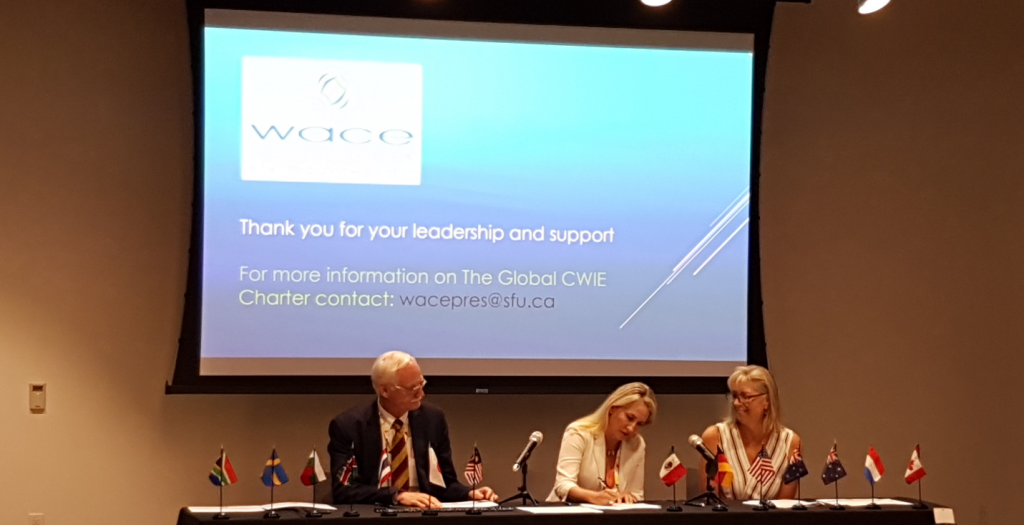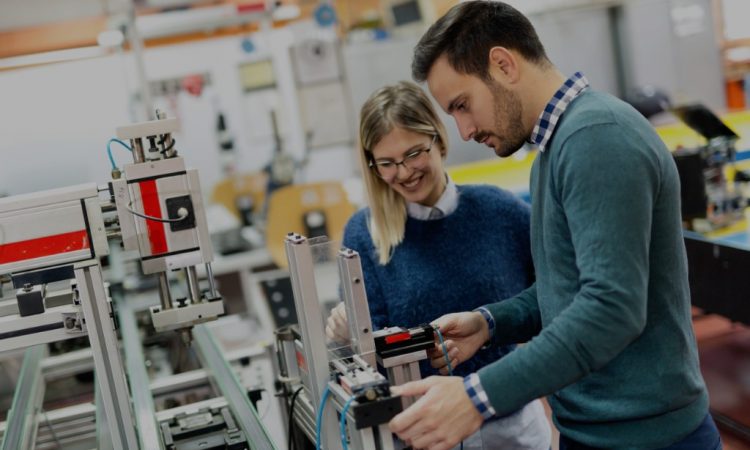While I was the President of CEWIL (Co-operative Education and Work-Integrated Learning) Canada this past summer, I was extremely honoured to be one of the first signatories to a first-of-its-kind international agreement: The Global Co-operative & Work-Integrated Education Charter. WACE, the World Association of Co-operative and Work-Integrated Education, developed the charter to help advance the creation of more and better international work-integrated educational experiences for students around the world.
WACE is the primary international association dedicated to developing, expanding, branding and advocating for co-operative and work-integrated education programs within industry and educational institutions. It embraces all forms of work-integrated learning.
While co-op education may have been founded in the United States in 1906, Canada has played a leadership role in co-op and work-integrated learning for over 45 years. I was pleased to sign this global charter as a symbol of Canada’s ongoing commitment to this critical talent pipeline tool. CEWIL Canada is the lead organization for work-integrated learning in Canada, with over 1,000 members across the country. Our mission is to build the capacity to develop future-ready students and graduates through quality work-integrated learning. We partner with post-secondary institutions, community members, employers, government and students to champion work-integrated learning (WIL).

As one of 50 Charter signatory organizations from 14 countries and five continents, CEWIL Canada has agreed to answer three calls to action:
- Create a significant number of new opportunities for students of Charter supporters to obtain meaningful, international, work-integrated experiences, with a focus on scaling up;
- Develop and deliver educational offerings specifically designed to enhance student intercultural fluency and resilience with focus on equity, diversity and inclusion;
- Facilitate conversations between higher education and business to determine what constitutes “global work readiness” and embed these attributes in a global quality-assurance framework.
So, what does this mean for Canada – our post-secondary institutions, employers and students? Less than 3% of Canadian students participate in exchange and work abroad programs, which is significantly lower than most OECD countries. Meanwhile, approximately 400,000 international students come to Canada annually. It is critical that Canada supports ways to help increase the cultural fluency of our students and graduates in order to allow them to flourish in the rapidly changing needs of the global marketplace.
CEWIL Canada is committed to working with our over 110 employer, community partner and institutional members to continue to build a connected workforce that can compete globally.
CEWIL would also like to provide a forum to bring forward challenges and possible solutions that exist in growing the number of quality international WIL experiences available for Canadian students including:
- Equitable access for marginalized and under-represented students
- Cost of participation
- Supports and preparation for international experiences
- Availability of appropriate, meaningful WIL opportunities
It will take a partnership of employers and community partners, government, educational institutions and students working together to ensure these opportunities are available for all.
We will be hosting professional development opportunities for our members over the coming year to address the next steps for meeting these calls to action, including at our next national conference in St. John’s, July 25-29, 2020. We know that lots of exciting initiatives are already happening to support this proven model of education, and that enhance global cultural competencies, and we look forward to highlighting best practices that will allow all of Canada to scale up quickly and effectively.
Want the best of CareerWise delivered to your inbox each week? Subscribe to our popular CareerWise Weekly newsletter to receive top news and views in career development every Tuesday.




